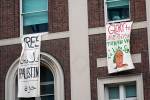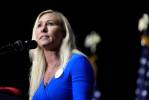Questions remain on initiative
So, now what?
That’s the question that remains after the Nevada Supreme Court’s unanimous ruling this week in the case of a sports arena sought by Caesars Entertainment for land behind the Imperial Palace.
The court was clear about one thing: The initiative petition to create a special taxing district to pay for the arena was flawed, in that a required 200-word summary failed to disclose that of the four arena proposals in Clark County, only the Imperial Palace site would qualify.
“Because it fails to reveal the ramifications to the competing arena proposals and fails to inform voters of the precise location of the proposed arena, we conclude that the initiative’s description of effect is deceptive and materially misleading,” the ruling reads.
The court sent the case back to Carson City District Court with an order to clarify the description of effect.
Oh, and one more thing: A request by opponents to strike the initiative from the 2012 ballot was denied.
So, now what?
Scott Scherer, attorney for the arena opponents, says the entire process must start over, because under state law, if the summary – called a “description of effect” – is amended, “any signatures that were collected on the original petition before it was amended are not valid.”
Why, Scherer argues, would the Supreme Court order the description of effect to be rewritten now if it didn’t intend for the initiative to be resubmitted to voters? Changing the wording now is meaningless to the people who’ve already signed it.
But arena proponents disagree, and they raise a good question: If the Supreme Court really intended to re-start the process, why would justices not have granted the motion to take the measure off the November ballot? If that was their intent, why be coy? Why not rule that, because each and every signature gathered under the description is – at the very least – that of a potentially deceived and misled voter, the petition must be re-circulated? Why not say that explicitly?
“It’s going on the November ballot,” says Jason Woodbury, an attorney for the arena committee.
Woodbury points out that voter guides published by the secretary of state’s office contain the description of effects. So, perhaps the court was saying voters will read the correct information at election time, and, notwithstanding the flaw on the petitions, will have a chance to give a fully informed ruling in November?
And what of politics? Could it be that the Supreme Court elected not to be more explicit because of the litigants involved in the case, Caesars in support and MGM Resorts International in opposition? The court has had no problem invalidating initiatives in the past where litigants weren’t mighty casino empires. Just ask Las Vegas Councilman Bob Beers, who saw his 2006 Tax and Spending Control initiative stricken because the version of his measure filed with the state was slightly different from the version circulated among voters.
So, now what? Scherer will return to the District Court to argue that the process has to start over, while Woodbury will return to argue that it should not. And a judge will have to figure out a key question left murky by the high court’s ruling.
Review-Journal political columnist Steve Sebelius is author of the blog SlashPolitics.com. Follow him on Twitter (@SteveSebelius) or reach him at (702) 387-5276 or ssebelius@reviewjournal.com.


















